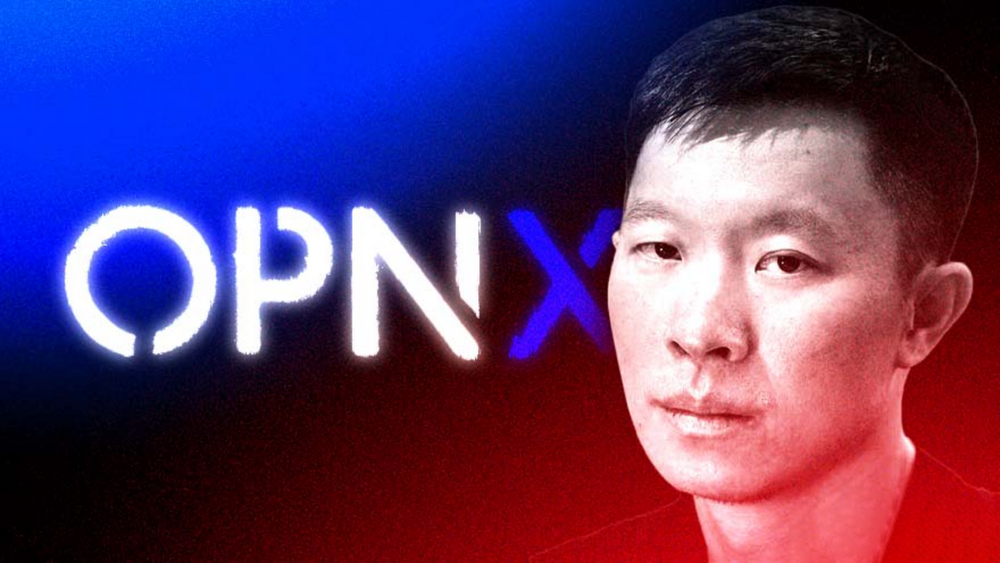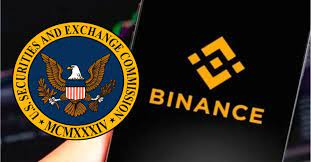The head of Libra’s letter to the US Senate: accepting anti-money laundering supervision and government supervision
On July 8, 2019, Facebook's Libra project leader David Marcus sent a letter to the US Senate to answer seven questions about Libra. In this letter, Marcus disclosed more details about the Libra project. For example, Libra made it clear that the balance sheet would consist of 100% of bank deposits and very short-term government securities; and that assets would be denominated in US dollars, euros, and some other major currencies. In addition, Libra hopes to receive appropriate anti-money laundering supervision and inspections and accept appropriate government oversight.
Less than a month after the Libra white paper was published, the Facebook project parties had extensive exchanges and consultations with regulators and international organizations of major governments around the world. The latest information disclosed in this letter is the result of consultations with the government over the past few days. On July 16, the US Senate will hold a hearing on Libra, which is critical to the development and promotion of Libra in the United States. Therefore, the importance of this letter is self-evident.

Dear President Clappo and Vice Chairman Brown:
- Who controls the power of the encryption market? Retail investors or institutional investors?
- Getting Started with Blockchain | Typical Bitcoin Whale with 200,000 BTC: Grayscale Investment Company
- QKL123 Quotes | BTC blood-sucking benefits are not reduced, back to step on the attack 13,000 US dollars (0710)
Thank you for your recent letter. I am grateful for your interest in the Libra project and I am very happy to have the opportunity to discuss this important project with you.
Libra is a grand concept, and our goal is to develop a safe, reliable and low-cost solution for people to effectively transfer funds globally. The situation today is that financial transactions take a very long time and are too costly. In addition, the cost of capital transfers is not low. Libra's audience is the ones who use these services, and the Libra Association's goal is to use blockchain technology to reduce transaction costs and expand access to the financial system.
We know that it takes time to implement Libra's ideas, policy makers and others have raised a number of important issues, and we can't do this alone, so we want and need governments, central banks, regulators, non-profits and others. Stakeholders work together. We also value all the feedback we receive so far, which is why we and other members of the Libra Association chose to publish the white paper earlier. This is to allow policy makers plenty of time to ask questions and share their concerns. I want to assure you that we are committed to taking the time to do the right thing.
LIBRA Association
In May 2018, Facebook set up a small team dedicated to exploring how to help more people benefit from blockchain technology. Our focus is on financial services. We believe that the blockchain can provide better basic financial services to people and businesses in a timely manner at a much lower cost than existing costs. The team set out to create a flexible digital currency and network while complying with applicable anti-money laundering (AML), counter-terrorism financing (CFT), sanctions and other laws.
These efforts ultimately led to a coalition of companies and organizations – the Libra Association, a non-profit membership association. The association plans to launch Libra, a digital currency built on the Libra blockchain, which people can use according to their daily needs, Libra will be 100% bank deposits and very short-term government securities (in US dollars, euros and some other Supported by major currency pricing).
The association will be responsible for setting rules for its members, operating the Libra regional chain, issuing digital currencies, and managing reserves that support digital currencies. Members of the Libra Association will include geographically distributed and diverse businesses, non-profit organizations and multilateral organizations, as well as academic institutions, and the reserves will be held by geographically dispersed commercial banking networks and some central banks. We hope that the Libra Association will obtain a government license or similar authorization to become a 100% reserve-backed digital currency issuer. We also accept appropriate anti-money laundering supervision and inspection and accept appropriate government supervision.
Although the final decision-making power will be borne by the Libra Association, it is expected that Facebook will maintain its leadership position in the project for the remainder of 2019. Once the Libra network is launched, Facebook and its subsidiaries will bear the same commitments and financial obligations as any other founding member. As a member of the Libra Association, Facebook's role in association governance will be the same as its peers.
CALIBRA, a subsidiary of Facebook
Facebook created Calibra, Inc., a US subsidiary of Facebook that promotes regulated money services and builds and operates services on the Libra network. Calibra will be the representative of Facebook at the Libra Association. As a regulated independent subsidiary of Facebook, Calibra will protect consumer financial data and will not use or share relevant data for advertising purposes.
As we embarked on the creation of Libra, a digital currency and blockchain, we approach industry experts and industry leaders in areas such as financial inclusion, economics, security, compliance, privacy and blockchain technology. We also met with US and European Central Bank, Treasury and Treasury officials, and financial services regulators, and look forward to continuing to engage with legislators and regulators. We know that these are complex issues, and they won't be solved overnight or by a single company.
Below, please see the reply to the following questions:
1. How does Libra's new cryptocurrency-based payment system work? Have you done those outreach activities to ensure that all legal and regulatory requirements of financial regulators are met?
With Libra, developers and businesses can build new, accessible financial services products for people and businesses around the world. The ecosystem will be based on the Libra blockchain, a new blockchain. Scalability, security and reliability are prioritized from the outset, and there will be greater flexibility over time; Libra Reserve, a low-risk and highly liquid financial asset reserve, will be fully Support Libra digital currency, providing low volatility and a wide range of consumer and business acceptance opportunities.
Facebook has contacted financial services, regulators, central banks, Treasury and finance officials, as well as other policy makers, financial action task forces and other global standards-setting bodies, as well as other stakeholders such as the Bank for International Settlements. The Libra Association will continue to conduct this outreach event in its own way as its members become more diverse.
The Libra Association will work with policy makers and regulators to ensure that this new ecosystem has added value to the economy and that consumers are protected while complying with government and central bank supervision. The association is fully committed to advancing the block. Global dialogue on chain and crypto asset regulation.
Through the newly formed subsidiary Calibra, Facebook will also discuss digital wallet issues with regulators. The Calibra digital wallet will be built on the Libra blockchain, which is expected to be one of the many competing digital wallets available to consumers. Our conversations focus on a range of issues, including global anti-money laundering (AML), anti-terrorist financing (CFT) and sanctions compliance programs, and Calibra is developing plans to prevent financial crime and further protect consumer and data privacy. Calibra has applied for a National Money Transfer Service Provider license in the United States and is also registered as a currency services company in the US Financial Crimes Enforcement Network (FinCEN).
2. What privacy and consumer protection will users get under the new payment system?
Similar to the widely used cryptocurrencies currently on the market (such as Ethereum and Bitcoin), transactions occurring on the Libra blockchain support the use of "kana", which means that the user's identity is not publicly visible. The Libra blockchain only records transaction-related data that is publicly visible, such as the blockchain address of the sender and receiver, timestamps, and transaction amounts.
Consumers and businesses can also operate their own public account addresses on the Libra blockchain, but these addresses can be independent of their true identity.
The Libra Association itself will not be involved in processing user transactions and will not store any personal data of Libra users. Transactions on the Libra blockchain will be processed and stored by a verifier node or a wallet service provider such as the Calibra Digital Wallet. We expect most consumers to use "managed" wallets, which also raises other privacy issues, as managed wallets will handle large numbers of transactions on the Libra blockchain, but they won't get any trader's address. In addition, the Calibra wallet will also be hosted.
Since Libra is an open source platform, third-party developers will be able to build their own digital wallets on top of the Libra blockchain, and these third parties will be responsible for the Libra wallet they develop, and they are responsible for determining the type of information they may need from their customers. And comply with national regulations and standards. For Calibra and other digital wallet service providers, regulators can ask them to collect information about their user identities and activities, and provide such information to law enforcement and regulatory agencies, such as anti-money laundering (AML), counter-terrorism financing (CFT), And the purpose of the sanctions.
The Calibra wallet is still under development and will provide customer support, anti-fraud protection and refunds in the future. In addition, Calibra will set up an anti-fraud and risk management team. Calibra is committed to protecting user privacy by providing simple, easy-to-understand and accessible data management control services. With a few exceptions, Calibra does not share account information or financial data with Facebook or any third party without the customer's consent, including legal and law enforcement or regulatory agencies regarding anti-money laundering or counter-terrorism financing, and Sharing data, etc. for purposes such as sanctions, but Calibra customer account information and financial data are not used to improve Facebook or its social media and instant messaging due to targeted ads in the product.
3. What consumer financial information does Facebook receive from financial companies?
Currently, users need to provide their payment credentials in order to trade on the Facebook platform. The transaction will be handled through Facebook Payments Inc., which deals with P2P payments on Facebook Messenger in the US, fundraising platforms for US charities, and digital goods or games on Facebook on the web, and some Business partners will also increase transaction support, such as PayPal, which will support certain US merchants on Pages and Instagram Checkout's trading operations in the United States.
Facebook Payments Inc. is a financial institution and a subsidiary of Facebook, but it has nothing to do with Libra. Because it processes transactions, it collects other information related to the transaction, including business information, transaction amount, transaction date and time, and purchase. The item, but Facebook itself cannot access the payment voucher information. For example, Facebook collects interactive information with the platform that is used to provide a better user experience and better recommend products.
Facebook Payments Inc. stores “non-public personal financial information data”, such as payment vouchers, etc. The reason for this is to comply with existing trading regulations, and the relevant information will not be used for advertising purposes.
In addition, financial companies can use the Facebook platform to interact with users. For example, financial companies can use robot programs or application programming interfaces (APIs) to facilitate customer interaction. Although Facebook is the platform for these interactions, Facebook itself cannot access payment voucher information in these interactions.
4. Facebook will receive consumer financial information from a financial company. So what does Facebook do about this information? And how does Facebook protect this information?
Please refer to the answer to question 3.
5. Will Facebook share or sell any consumer information with non-affiliated third parties?
Consumer information is not sold to non-affiliated third parties. We may share data with non-affiliated third parties in limited circumstances, which is an exception to the Financial Services Modernization Act (GLBA). For example, if the regulator agrees or for fraud prevention purposes, we will provide A privacy statement that shares data with non-affiliated third parties.
6. Does Facebook have information about the goodwill, reputation, creditworthiness, personality, general reputation, personal characteristics or lifestyle of the individual (or individual group)? Will Facebook or non-affiliated third parties use this data to build products or services related to 1) credit, 2) insurance, 3) employment, or 4) housing, or use the data in marketing?
We will follow Facebook's data policies, terms of service, and other disclosure rules for user notifications, and Facebook allows its users to connect, send, and share information of their choice.
According to the US Fair Credit Reporting Act, Facebook does not share any user information with third parties for any purpose. In fact, even if it is a “qualified” third party that is considered for acceptance in the Fair Credit Reporting Act, Facebook’s platform policy prohibits them from using the data. Facebook also investigates developers’ alleged violations of platform policies and has taken action to stop developers’ access to the platform in violation of our policies.
Facebook does not share account information or financial data with Facebook or any third party without the customer's consent, including special sharing with law enforcement agencies or regulators for anti-money laundering or counter-terrorism financing, and sanctions laws. Data, etc., but Calibra customer account information and financial data will not be used to improve Facebook or its social media and instant messaging due to targeted ads in the product.
Facebook does not obtain or use consumer reports or credit scores for any purpose.
7. How does Facebook ensure that it does not violate the Fair Credit Reporting Act to ensure that it does not use information about the goodwill, reputation, creditworthiness, personality, general reputation, personal characteristics or lifestyle of the individual (or individual group)?
Please refer to the answer to question 6.
Your sincerity,
David Marcus

Translation: White Night
Review: Tang Wei
Source: Carbon chain value
We will continue to update Blocking; if you have any questions or suggestions, please contact us!
Was this article helpful?
93 out of 132 found this helpful
Related articles
- Ethereum USDT additional flow analysis: the second full-issue distribution in July
- Proficient in IPFS: IPFS saves the content below
- The European Central Bank reserves bitcoin? The official reply said: No, it is just a speculative asset.
- Cross-chain investment opportunities and three pool model analysis
- Blockchain Recruitment Report: Average annual salary of $105,000; London's largest demand
- Market Analysis: The market is fierce, and the results of long and short battles will determine the trend of key trends.
- Facebook sent a letter to Senator: Libra does not obtain personal financial information from users.






